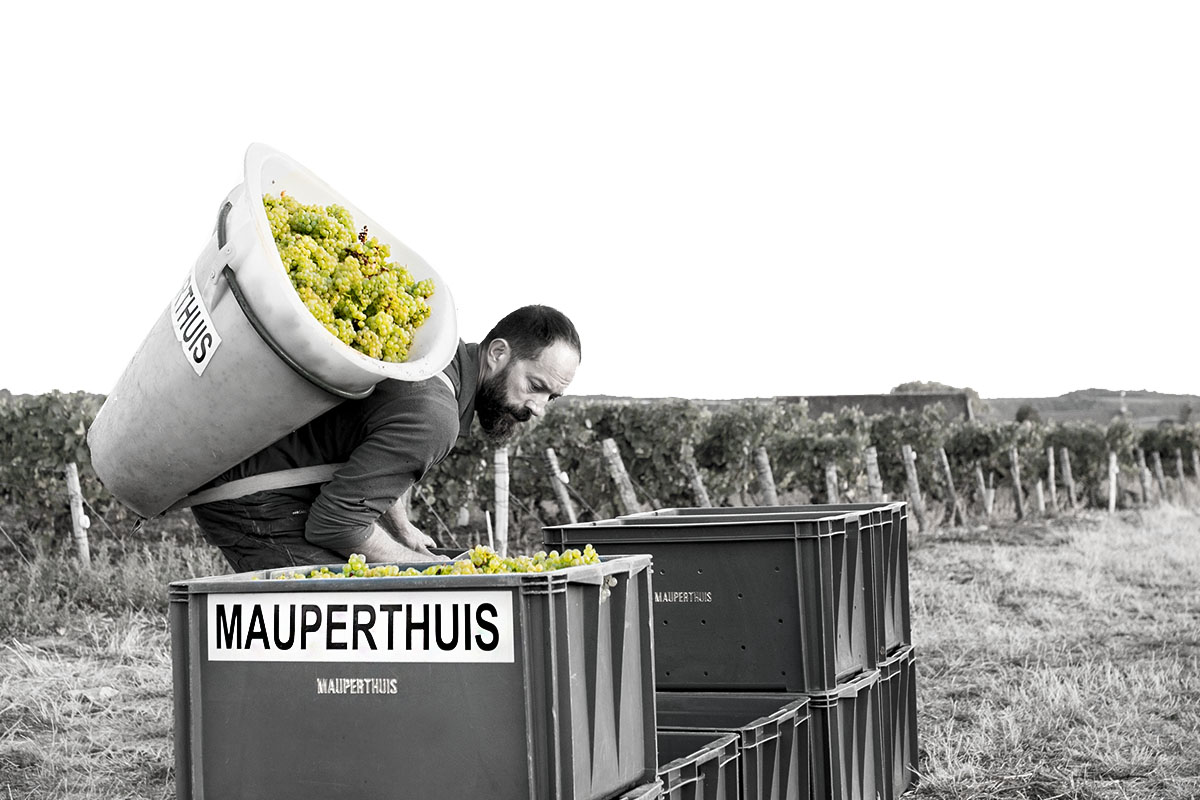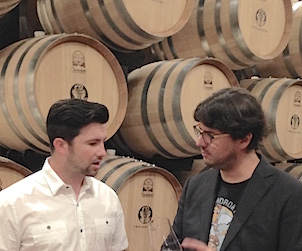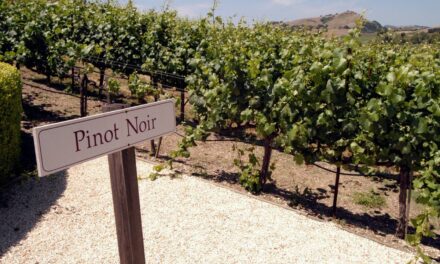Three wine lovers, one Peugeot. Hitting the back roads of Spain.
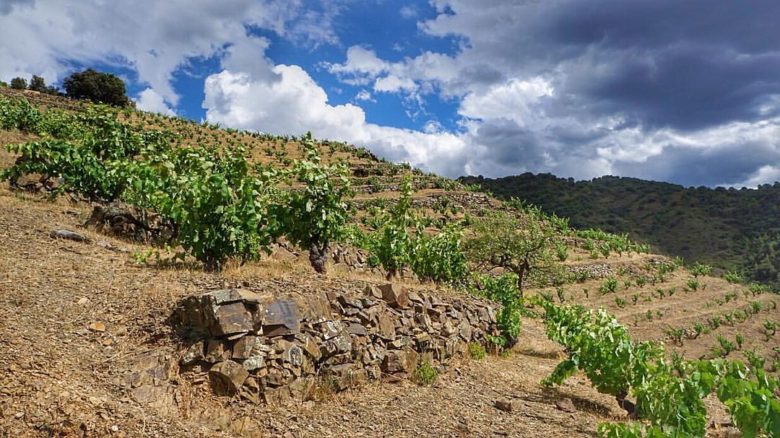
Contrary to popular belief, the business of bringing wine into the province is not a business of full-fledged hedonism.
While we have the distinct pleasure of working with people very good at pursuing delicious, fascinating things, it is, in fact a business of, well … business. Part of that business is meeting the winemakers, winery owners, and vineyard workers who trust us to bring the fruit of their labour across an ocean and connect it with the people (like you) who would otherwise never encounter it. It’s business, it’s conversation, it’s connection. The better we know a story, the better we can share it. Over the past year, we’ve introduced some of Spain’s best and most interesting wineries to the Rogers & Company portfolio. Just this week, we hosted a slew of wine-loving folks at the beautiful Estia restaurant to taste a few of those wines and take a deep dive into the country they come from, from Priorat to Rias Baixas.
That tasting recalled a roadtrip we took this summer. Spain’s not a country short on stories, and it’s hard to beat visiting a winery in person, so we packed into a Peugeot and hit the road.
Wait, no. Actually, we ate first. After landing in Barcelona and requisite long walks and encounters with Gaudi, we settled in at Bar Mut. This was an excellent decision. Bar Mut is a temple of Catalan cuisine. The sort of temple that feeds suited businessmen their breakfast and locals and visiting epicure-pilgrims shoulder-to-shoulder through long, late, tapas-fueled evenings. Is there anything better than watching plate after perfect plate of tapas leave a tiny kitchen, pointing and ordering “Just one more?” Lively and warm, we ate carpaccio de huevo and huge sweet red gambas and platters of seasonal white asparagus.
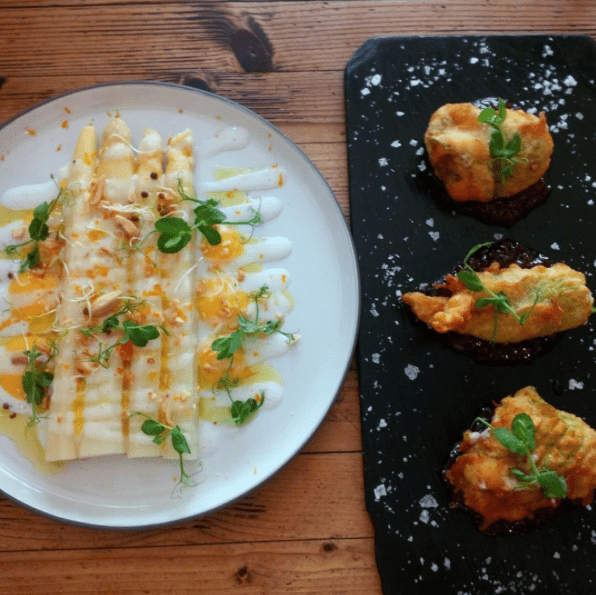
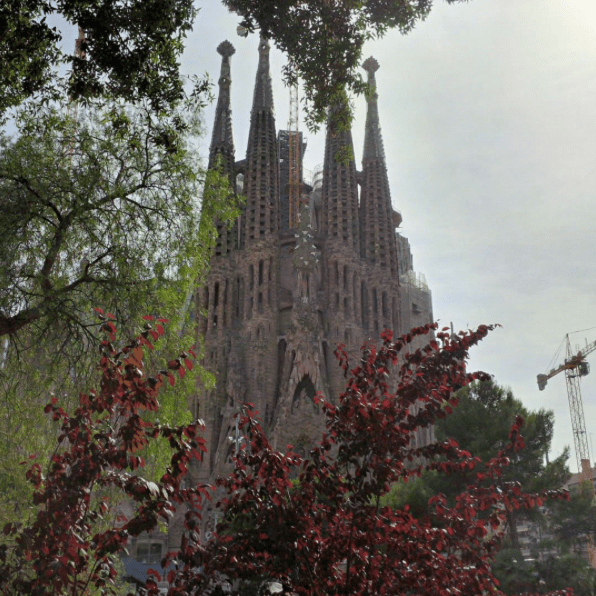
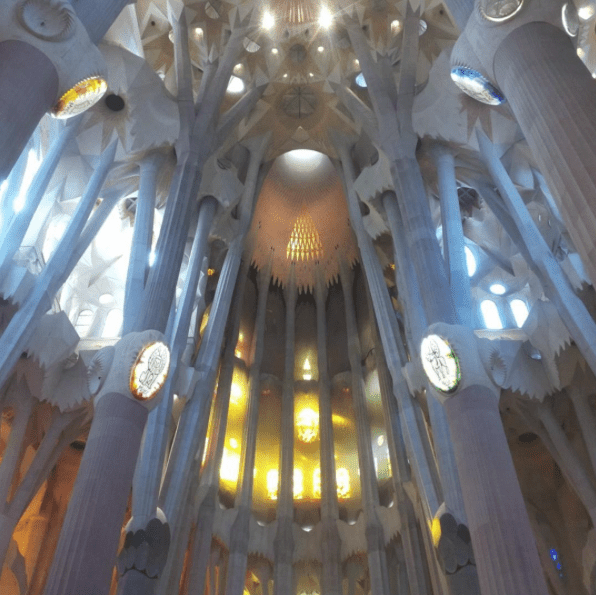
Our first destination: Priorat. Southwest of Barcelona in the hills that rise up from the Mediterranean, Priorat (like much of Spain) has a long legacy of wine production. Monks have made wine here since the 1100’s. The region is just now gaining prominence for sought-after Garnacha-based wines. Xavier Buil of Buil e Giné, our gracious, soft-spoken host, introduces us to his steep, dusty, bush-trained vineyards. The sun is relentless and we can smell sea salt on the breeze when the wind is just right. We’re a long way up, but any cooling influence is from the Med, not from altitude. Xavi was raised here in a family of grape-growers, but is the first to make wine. The reds are ripe and spicy, with fruit and minerality in tandem. His “Joan Giné” white is made from Grenache Blanc and Viura, all citrus and salt and honey. He’s been lauded by the press for these wines, winning Wine & Spirits “International Winery of the Year” not once but three times.
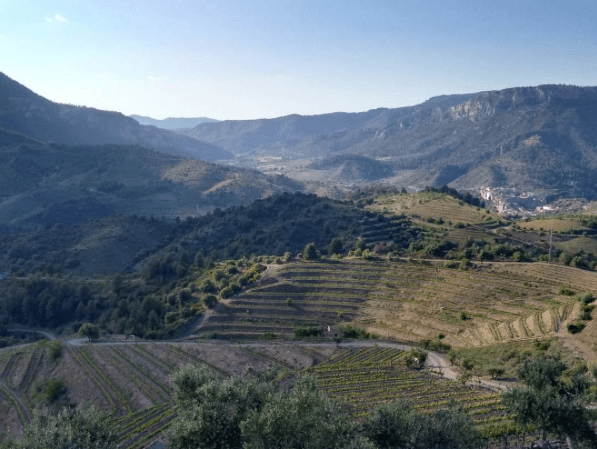
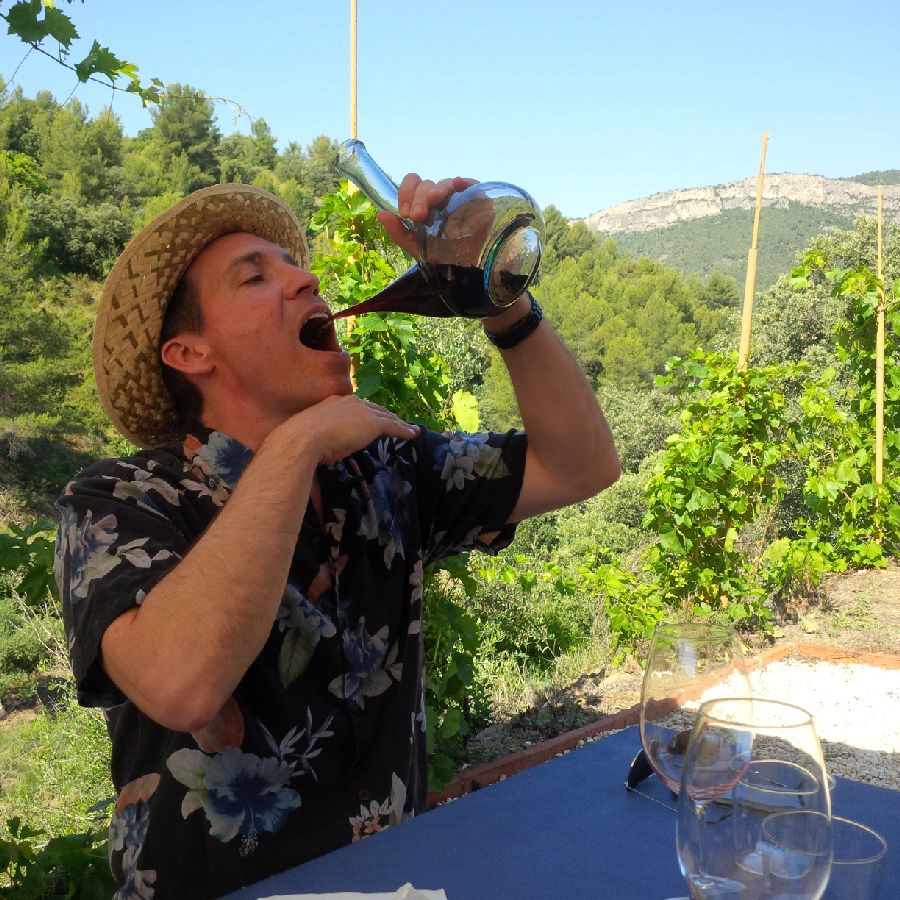
The consummate host, Xavi sends us on our way with breakfast wine and straw hats to shield our delicate Canadian skin from the sun. We jogged a bit northeast to Mas Doix, another of Priorat’s wineries, family-owned since the 1800’s. The estate vineyards in Poboleda are special. Perched 450 metres above sea level, it’s a relatively cool spot thanks to breezes that flow through the valley. (We keep our hats on, though.) The cool micro-climate slows ripening a little and extends the growing season. Grapes that ripen slowly tend to yield elegant, complex flavours and bright acidity – it makes sense when we taste the line-up. Cherry and thyme shine through in the Salanques, a Garnacha/Carigñena/Syrah blend. It’s a block-buster wine, beautifully layered with dried herbs and black pepper. It has garnered big scores and is exceptional value.
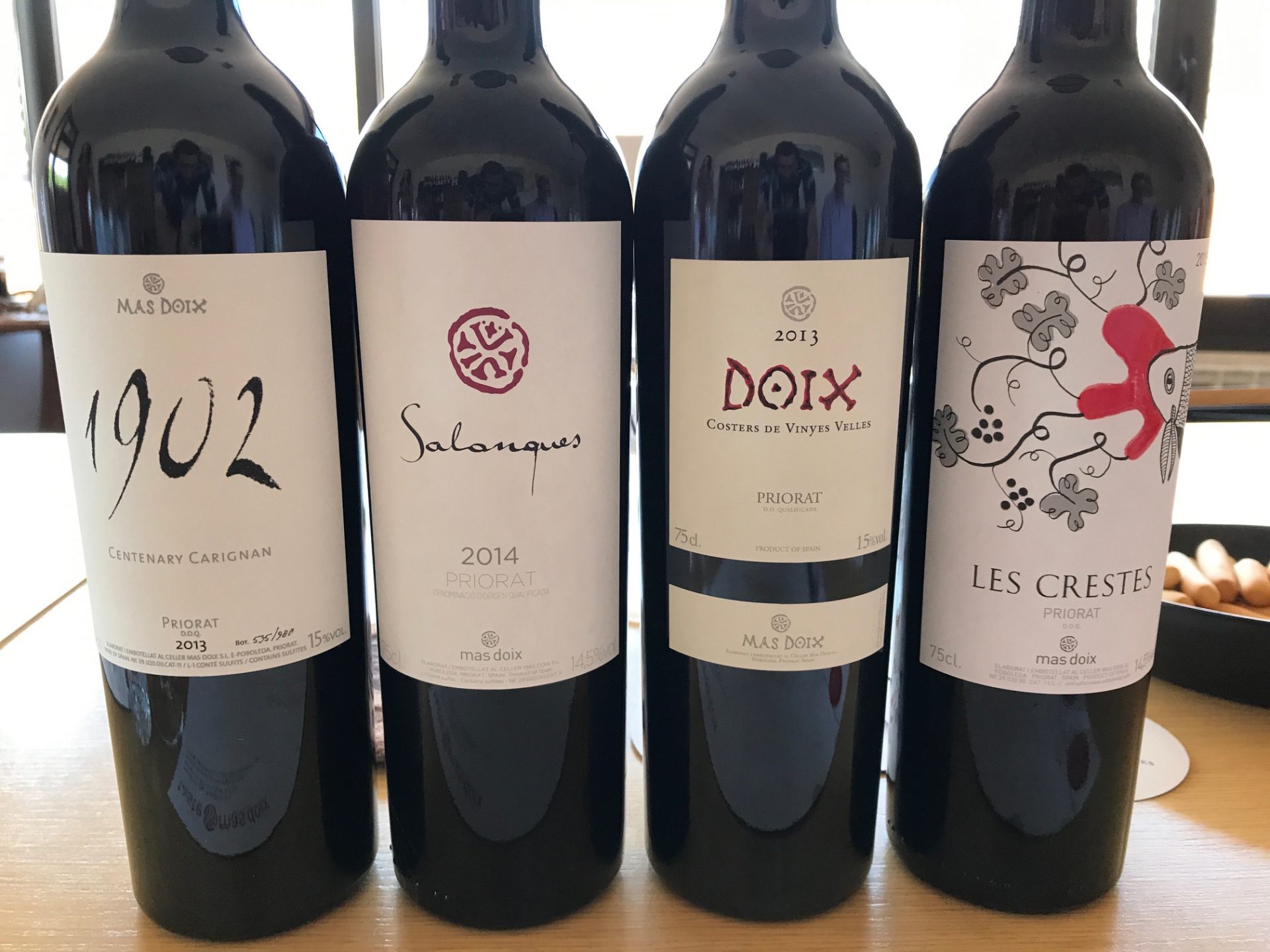
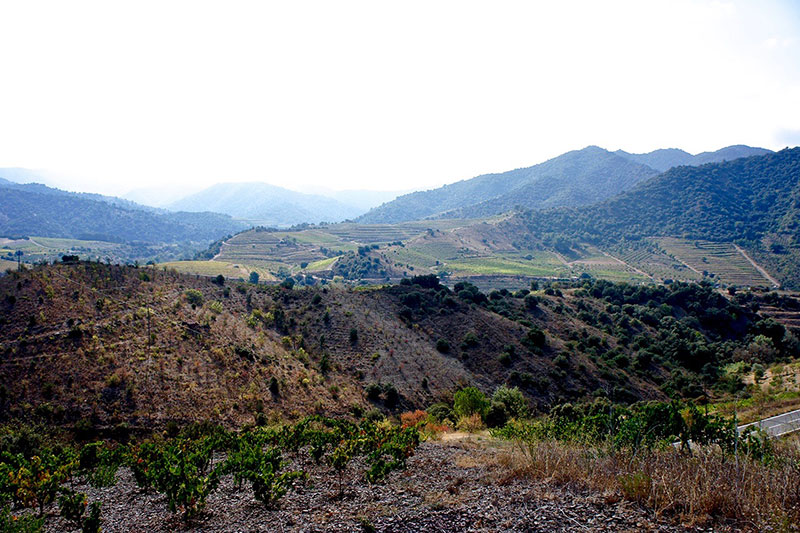
It would be impossible to talk about the wines of Priorat without mentioning the llicorella soil that contributes to terroir. We’d heard about the dark, shingled slate “soil”, but the impact is striking in person. The space between vines looks like black shingles that clatter underfoot. Not much could grow here, but the old gnarled vines send roots deep searching for water, breaking down the rock and taking it in. Like the limestone of Burgundy it’s a component of minerality you can see and taste. It’s easy to understand how the Priorat landscape affects the wines produced here: of course the fruit is hand-harvested – what tractor could maneuvre on the steep, slate-covered ground? Of course yields are low – the parched, nutrient-poor soil isn’t exactly cut out for bulk wine. Of course identity is strong – this is a severe, challenging place, with perhaps a dozen villages. These are qualities unlikely to change as the wines gain momentum.
Rioja, Toro, Rueda, and the Ribera del Duero (new landscape, new wines) came later.
Buil e Giné and Mas Doix are represented in Ontario by Rogers & Company. If you’re new to Rogers & Company: Welcome! Wines are sold in unmixed cases of 12, 6, or 3, depending on the item. Some wines are available by the bottle at the LCBO. Delivery is easy: We can bring the wine to your door, or you can stop by our office to pick up and meet the crew and the company dog. To learn more about their wines, or place an order: rogcowines.com




